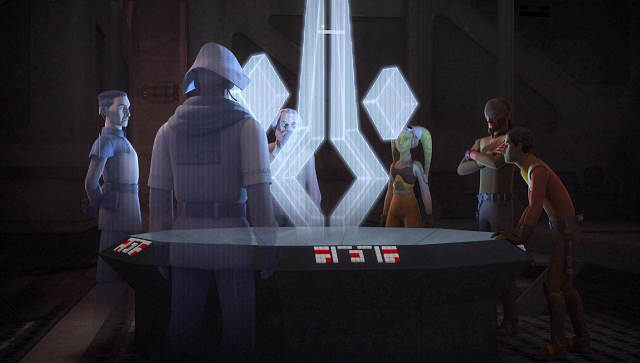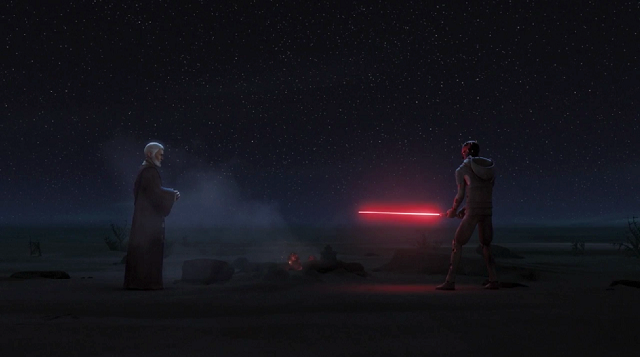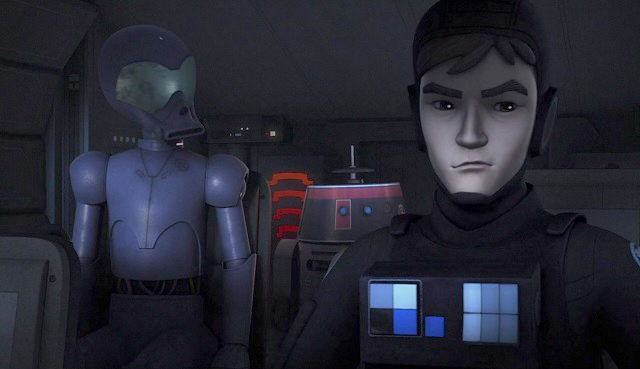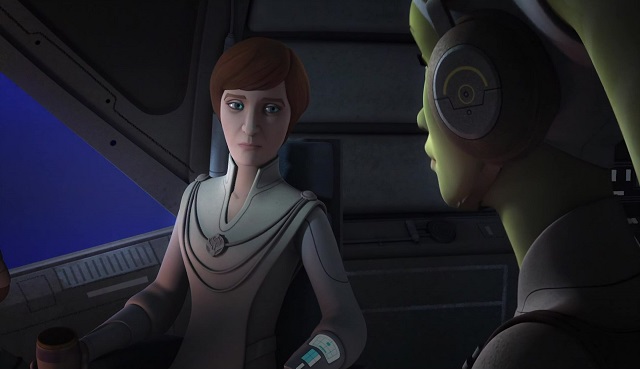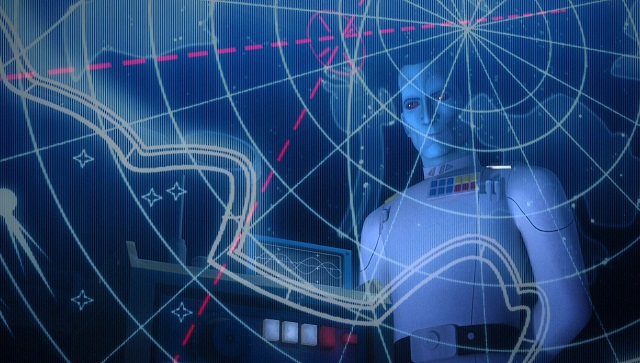
David: What makes a good villain? Is it an easy-to-understand motivation? Is it a certain degree of likability? Is it intelligence, perhaps, or the ability to command respect? Or maybe a personal connection to the heroes? Or is it that hard-to-define but easy-to-recognize factor that we often call coolness? Darth Vader has all of these, and that’s the reason he is one of the best villains in modern culture. His screen time in Star Wars Rebels season two was short but definitely memorable, going from a really strong first appearance where he basically made our heroes run for their lives to one final showing where he (maybe) killed one of the most loved characters in the franchise and left the rest of the crew reeling from the impact. But how have the other Rebels villains lived up to this example? Especially: how good of a villain has Grand Admiral Thrawn been?
When the trailer showing the animated Thrawn was first shown at Star Wars Celebration London, the room went completely wild. There you had what was probably the most popular villain from Legends jumping to the small screen and becoming the main opponent for the season, a successor to the Grand Inquisitor and Darth Vader. There he was, looking at art (omigosh at Sabine’s graffiti) and talking cryptically about the imminent destruction of the Rebellion. But once the initial excitement wore off there was one question hanging in the air: would the series do justice to the Grand Admiral? Timothy Zahn seemed to think so, but how would Thrawn work through the whole season? Was this the same old Thrawn from 1991?
No, he definitely wasn’t the Thrawn we were used to. Read More
